D.K. Sanz/Kyrian Lyndon's Blog, page 2
June 12, 2024
GOOD THINGS WE LEARN ALONG THE WAY
Do you ever have these thoughts?
I’m doing this all wrong.
I’m doing everything wrong
I should just give up.
I’m useless.
I’ll never be able to do this.
I’m not good enough
Nobody cares.
I can’t relate to anyone.
What’s the use?
When these thoughts occur, you may have an urgent need to do something, fix something, change something to extinguish that perception. If it’s about achieving a goal, we can refuse to give up. Although it may also feel as if we must alter the perception externally for the world’s validation, as if others are watching and waiting. But there is no real urgency there. Nothing good comes from rushing to control “perception” in a desperate state of mind. Take a pause. You have time.
You can probably resolve it internally. Summon your will and your strength and make a choice that you don’t want to surrender to this mindset and absolutely refuse it. Because all those thoughts come from a past belief system where someone or another implied those things or maybe even said them to you, and you believed them. You know better now, but sometimes we forget. Tell yourself not to give in to this doubt about who you are. Just as you wouldn’t do it to anyone you love, don’t do this to yourself.
Patience isn’t always our strong suit, but if we wait a bit, things change. They could easily get better. It’s amazing what a difference an hour, a day, or a week makes. Stay in the moment and just keep doing the next right thing. You are amazing.
Image by Free Fun Art from Pixabay
May 4, 2024
AN HONEST LOOK AT WHAT MOTIVATES YOU
A recovery friend of mine once belonged to an AA group called “What’s Your Motivation?” She said she’d always ask herself that in situations where she had to say or do something she might regret, and she’d ask others as well. She asked me that once or twice. So, you start out by asking yourself that question when the situation arises, and a lot of time you realize there is no good motive behind the thing you want to do or say, so you don’t say it. You don’t do it. After a while, it becomes second nature.
Unfortunately, however, so many people out there are living their lives while untreated for their afflictions. Whether it’s addiction, including alcoholism, or a type of personality disorder, their behavior often stems from how they feel about themselves based on other people’s words and actions, things they had inadvertently taken on and clung to fiercely. They may have a desperate need for attention, validation, admiration, and respect. Maybe their delusions distort their perception of themselves and how others view them. They are so busy worrying about themselves that they are often oblivious to their motives and may not realize how little regard they have for others. In a genuine sense, they are fighting for themselves, but they’re not winning.
Many of us have lived that way once upon a time and, because of it, spent a copious amount of energy on damage control. Knowing we said something we shouldn’t have said or did something we shouldn’t have done and going into this anxiety-ridden desperation to save our “image”—an image that likely isn’t real but a delusion. When we should be more concerned about apologizing or making amends, we’re more obsessed with not wanting to be seen in a negative light and having to act in order to change the negative perception.
It takes recovery, healing, and time to learn that if you are intent on doing the right thing, doing right by people, and having everyone’s best interests at heart, you’ll know how to react and respond to things. And if you ever say or do something you regret, you simply say you were wrong and apologize.
Empathy for others and for ourselves is what makes it possible. It makes us care about how we treat people and the effect it’s having on not only them but on our lives and the lives of anyone who cares about us. We eventually understand that how we treat people is just as important as catering to our own needs.
I think it’s important to understand what made us a certain way in life and to acknowledge that, but then we have to fix it. It becomes our job and responsibility to heal that so that we grow and change. Too many people never get to a point where they can see it, let alone understand it, so those of us who do are quite fortunate.
“Nobody can say anything about you. Whatsoever people say is about themselves. But you become very shaky, because you are still clinging to a false center. That false center depends on others, so you are always looking to what people are saying about you. And you are always following other people, you are always trying to satisfy them. You are always trying to be respectable; you are always trying to decorate your ego. This is suicidal. Rather than being disturbed by what others say, you should start looking inside yourself.
Whenever you are self-conscious you are simply showing that you are not conscious of the self at all. You don’t know who you are. If you had known, then there would have been no problem— then you are not seeking opinions. Then you are not worried what others say about you— it is irrelevant!
When you are self-conscious you are in trouble. When you are self-conscious you are really showing symptoms that you don’t know who you are. Your very self-consciousness indicates that you have not come home yet.”
― Osho
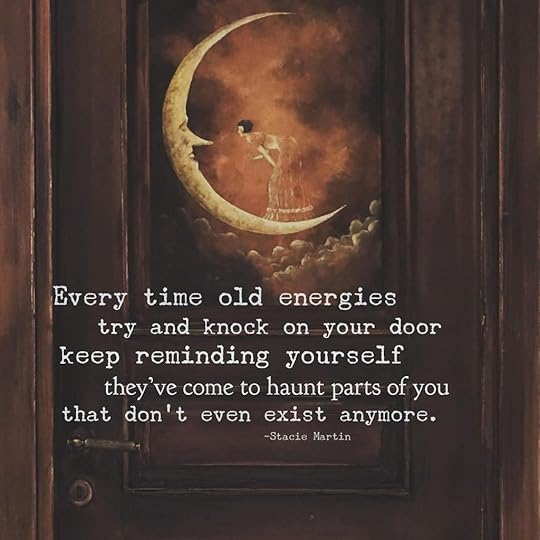
Feature image at the top by Gerd Altmann from Pixabay
April 23, 2024
IN PRAISE OF SOME TRULY WONDERFUL BOOKS
Most often, my favorite books are high suspense page turners—thrillers, horror, fantasy. And since I am fascinated by human behavior and shared wisdom, I also read memoirs and accurate historical accounts of important events.
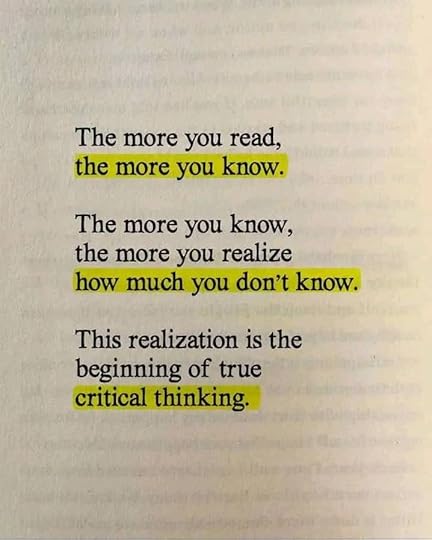
Before I get into the two books I’m referring to in the title of this post, I’ll review a third book I finished reading at about the same time. It’s a good book as well, so I’m happy to give it a mention. I plan to post all reviews on Goodreads and Amazon.
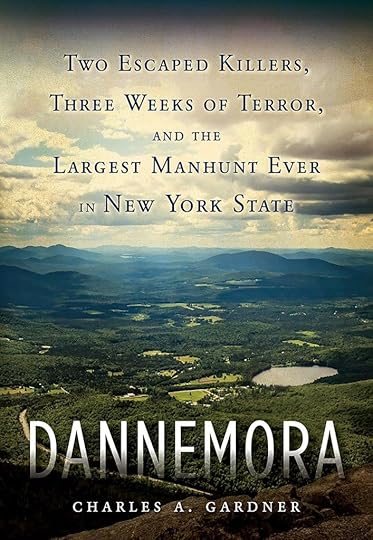 Description:
Description:The True Story of the Prison Escape That Inspired the Documentary “How It Really Happened”
In June 2015, two convicted murderers broke out of the Clinton Correctional Facility in Dannemora, in New York’s North Country—launching the most extensive manhunt in state history and dominating the news cycle with the sex scandal linking both inmates to the prison employee who aided them.
Double murderer Richard Matt and cop-killer David Sweat slipped out of their cells, followed a network of tunnels and pipes under the thirty-foot prison wall, and climbed out of a manhole to freedom. For three weeks, residents of local communities were prisoners in their own homes as law enforcement swept the wilderness near the Canadian border.
Dannemora is a gripping account of the bold breakout and the search that ended with one man dead, one man back in custody—and lingering questions about those who set the deadly drama in motion.
I enjoy watching prison drama shows and reading books about it. This historical escape is recounted by a former prison guard and retired correction training lieutenant (Gardner). Funnily enough, it happened in my state, but coverage in southern New York, where I live, was not as extensive as it was up north. The facility we refer to down here as Dannemora is actually the Clinton Correctional Facility in Dannemora, a remote rural area closer to Montreal than to me. So, learning about this legendary place and how New York State runs its prisons fascinated me, but the book doesn’t really become a page-turner for a while.
The book left no doubt that a lot of problems within the prison system need to be resolved. I read reviews where people felt the author was biased in blaming the governor (Andrew Cuomo) and the Department of Corrections administration for the escape of these two dangerous criminals and not the neglectful, incompetent guards. However, as the author explains, these prisons are short-staffed. They are restricted in terms of what they can do, and God forbid anything they have to do requires overtime pay. Gardner does als0 blame any guards who were neglectful.
Anyway, this was a good read. I enjoyed it.
About the Author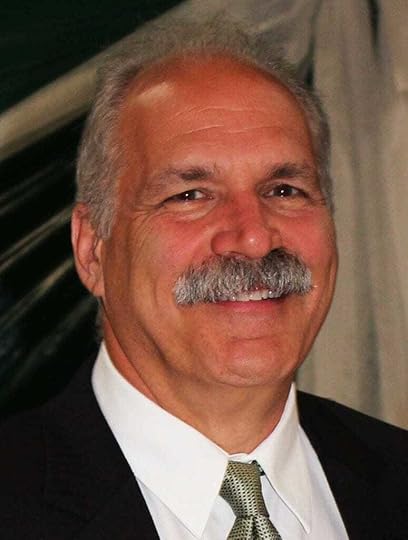
Charles A. Gardner is a municipal court judge and retired correction training lieutenant in Malone, New York, the far-upstate town where he was born and raised. His twenty-five-year career in New York State Department of Corrections included working as a correction officer, sergeant, and lieutenant. He had experience working in medium- and maximum-security facilities including stints at Clinton Correctional Facility in Dannemora and the maximum-security prisons of Sing Sing, Bedford Hills, Great Meadow, and Upstate. He lives with his wife in the North Country. Visit him at http://www.charlesagardner.com.
 Description:
Description:Winner of the Pulitzer Prize and the National Book Award, this novel about a resilient and courageous woman has become a Broadway show and a cultural phenomenon.
Celie has grown up poor in rural Georgia, despised by the society around her and abused by her own family. She strives to protect her sister, Nettie, from a similar fate, and while Nettie escapes to a new life as a missionary in Africa, Celie is left behind without her best friend and confidante, married off to an older suitor, and sentenced to a life alone with a harsh and brutal husband.
In an attempt to transcend a life that often seems too much to bear, Celie begins writing letters directly to God. The letters, spanning twenty years, record a journey of self-discovery and empowerment guided by the light of a few strong women. She meets Shug Avery, her husband’s mistress and a jazz singer with a zest for life, and her stepson’s wife, Sophia, who challenges her to fight for independence. And though the many letters from Celie’s sister are hidden by her husband, Nettie’s unwavering support will prove to be the most breathtaking of all.
The Color Purple has sold more than five million copies, inspired an Academy Award–nominated film starring Oprah Winfrey and directed by Steven Spielberg, and been adapted into a Tony-nominated Broadway musical. Lauded as a literary masterpiece, this is the groundbreaking novel that placed Walker “in the company of Faulkner” (The Nation), and remains a wrenching—yet intensely uplifting—experience for new generations of readers.
My rating: *****My ReviewFor me, this book falls into the category of human behavior, struggles, and experiences that I want to read about. It’s fiction but reflects the times, namely how appallingly white people treated black people, especially women, in the first half of the twentieth century. The dialogue is consistent and seems so authentic, staying true to the well-developed and endlessly endearing characters. I had so much love for Celie, Shug, Nettie, and Sofia—for their kind hearts and earned wisdom. Their courage, grace, and determination to survive and fight back had me cheering them on from beginning to end. I laughed and cried with them.
There are so many great quotes from the book, but one of the many that made me laugh hard was Sofia responding to white men calling her “Aunt.” As Celie explained, Sofia ast one guy “which colored man his mama sister marry?”
The Colored Purple is a gem of a book to be treasured throughout time and so well deserving of the Pulitzer Prize awarded to its author. I highly recommend it.
About the Author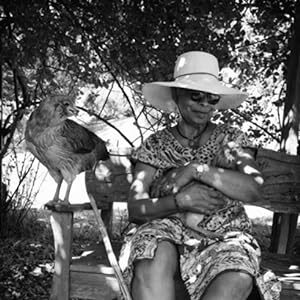
Alice Walker (b. 1944), one of the United States’ preeminent writers, is an award-winning author of novels, stories, essays, and poetry. In 1983, Walker became the first African-American woman to win a Pulitzer Prize for fiction with her novel The Color Purple, which also won the National Book Award. Her other books include The Third Life of Grange Copeland, Meridian, The Temple of My Familiar, and Possessing the Secret of Joy. In her public life, Walker has worked to address problems of injustice, inequality, and poverty as an activist, teacher, and public intellectual.
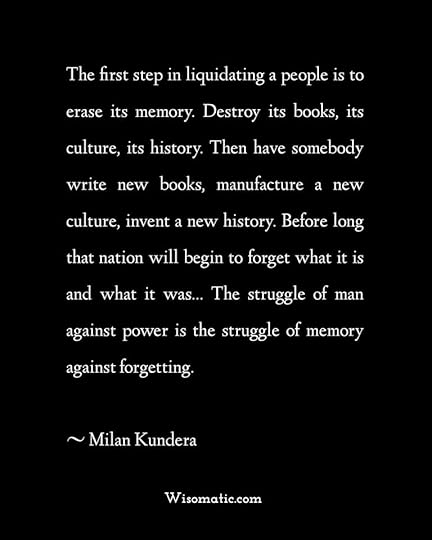
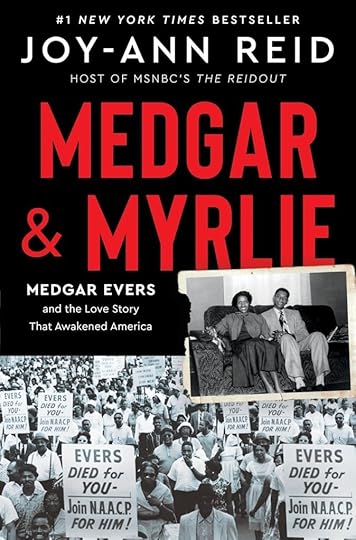 Description:
Description:Myrlie Louise Beasley met Medgar Evers on her first day of college. They fell in love at first sight, married just one year later, and Myrlie left school to focus on their growing family.
Medgar became the field secretary for the Mississippi branch of the NAACP, charged with beating back the most intractable and violent resistance to black voting rights in the country. Myrlie served as Medgar’s secretary and confidant, working hand in hand with him as they struggled against public accommodations and school segregation, lynching, violence, and sheer despair within their state’s “black belt.” They fought to desegregate the intractable University of Mississippi, organized picket lines and boycotts, despite repeated terroristic threats, including the 1962 firebombing of their home, where they lived with their three young children.
On June 12, 1963, Medgar Evers became the highest profile victim of Klan-related assassination of a black civil rights leader at that time; gunned down in the couple’s driveway in Jackson. In the wake of his tragic death, Myrlie carried on their civil rights legacy; writing a book about Medgar’s fight, trying to win a congressional seat, and becoming a leader of the NAACP in her own right.
In this groundbreaking and thrilling account of two heroes of the civil rights movement, Joy-Ann Reid uses Medgar and Myrlie’s relationship as a lens through which to explore the on-the-ground work that went into winning basic rights for Black Americans, and the repercussions that still resonate today.
My rating: *****My review:Overall, Medgar and Myrlie: Medgar Evers and the Love Story That Awakened America is a beautiful tribute to American civil rights activist, Medgar Evers and his wife, Myrlie, who was the epitome of elegance, grace, and devotion while being her own courageous young woman.
Medgar Evers was a World War II veteran in a war we fought over racial superiority, a war against racial tyranny, but at home, in the United States of America, even in the 1960s when our little worlds were about peace and love, we treated black people appallingly. For that reason, America looked quite hypocritical to other countries who were aware of the racial tensions here as well as the mistreatment. World War II veteran Medgar Evers, like other people of color, faced the utmost disrespect, being denied the rights afforded to white people and subjected to unimaginable cruelty while being mocked and humiliated every step of the way.
When President Kennedy offered Medgar’s family the honor of having him buried at Arlington Cemetery with the other veterans and heroes, it alarmed segregationists. Good thing their protest amounted to nothing, and Medgar received the honor he deserved.
I love that, as discussed in the book, the widows of Martin Luther King, Jr., Malcolm X, and Medgar Evers made friends and supported one another. Coretta Scott King, Betty Shabazz, and Myrlie Evers-William carried on the fight, making tremendous strides of their own as civil rights activists.
Bless Medgar Evers and his family, what they sacrificed to get us where we are today. I never use the world surreal, but when I came upon a photo of Myrlie Evers hugging President Barack Obama fifty years after Medgar’s death, that was surreal to me. She delivered the invocation at his second inauguration ceremony on January 21, 2013.
Medgar and Myrlie isn’t the page-turning suspense book I normally read, and it’s certainly not an easy read. It’s a book you read slowly in many intervals, and the more you read, the more you want to know. We should know all of this—our history, the good and the bad. It is critical that we learn from people from all walks of life, whether their experiences are similar to or vastly different from our own.
Medgar and Myrlie is an important book that should be required reading in our schools. I say that because no one taught me about Medgar Evers when I was in school. I, like so many others, grew up oblivious to the sacrifices this young civil rights activist made for the greater good and how much he contributed to the rights ultimately won by his community.
Some people feel that reading stuff like this will traumatize their kids and plague them with guilt. With my awareness as a child, the only effect it had on me was ever-increasing and much-needed empathy. And, yes, all of it is traumatizing—even more so for the people who lived it and constantly witness dismissal of their experience and their pain. As parents, we can help our children sort through whatever they feel about it, and they will emerge as much more kindhearted individuals.
You know, I have to say, Martin Luther King Jr. spoke of saving us from our own demons. He saw the cruel, ugly behavior as demonic. And that’s what demonic means—extremely evil or cruel. And ironically, for so many, the guidebook is the Bible. Both the Old and New Testament have countless passages about loving one another, being kind and generous to the poor, defending the oppressed. For the oppressed to break free. To love mercy, carry each other’s burdens. Yet, one of the biggest problems we have today is people incapable of putting themselves in someone else’s place and being willing to see things from their point of view. It’s easy not to read, not to listen, not to care. The consequences of ignorance affect both the ignorant individuals and the children they raise to be equally oblivious and unkind.
My son and I often talk about why some kids realize at an early age that we need to reject all of this and fight for what’s right, while other kids just go along with what their parents teach them. People are afraid of testing their support system because they have bonded with people who have normalized bigoted behavior, and you sacrifice a lot to stand your ground. But I think about what civil rights leaders sacrificed. Some things are just bigger than us.
So, yes, Martin Luther King Jr. hoped we would rise above our past and present demons.
I read a blog post the other day by someone who thought it was arrogant of Dr. King to think that he could save the soul of America. And yet many people believe that an avaricious, unlawful, misogynistic bigot like Donald Trump can do it. Why? Because he’s white? Unlike Trump, Martin Luther King Jr. didn’t think it was his job alone to heal the country and save our souls, but that it required a collective effort. We are all tasked to help heal the universe, and I hope we succeed.
About the author: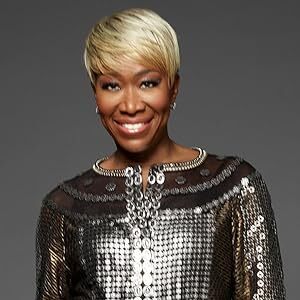
Joy-Ann Reid is the host of “The ReidOut,” which airs weeknights from 7-8:00 P.M. ET. on MSNBC. She previously hosted the weekend program: “A.M. Joy” (2016-2020) and a daily news show “The Reid Report” (2014-2015).
A 1991 Harvard University graduate with a Bachelor of Arts degree in Visual and Environmental Studies with a concentration in documentary film and a 2003 Knight Center for Advanced Journalism fellow, Reid has a longtime interest in politics and elections. During a hiatus from the news business, she worked as a press secretary for the national voter registration and mobilization entity, America Coming Together in 2004 and for the Florida branch of Barack Obama’s presidential campaign in 2008.
Reid has written four books: Fracture: Barack Obama, the Clintons and the Racial Divide, We Are the Change We Seek: The Speeches of Barack Obama (with Washington Post columnist E.J. Dionne), The New York Times best-selling, The Man Who Sold America: Trump and the Unraveling of the American Story and her latest: Medgar and Myrlie: Medgar Evers and the Love Story That Awakened America.
An honorary member of Delta Sigma Theta Sorority, Inc., Reid has received six NAACP Image Award nominations and The ReidOut received the award for best talk program in 2020. The documentary she co-Executive Produced: The Sit-In: Harry Belafonte Hosts the Tonight Show (directed by Yoruba Richen) was nominated for an Emmy Award. And she has received media awards from the Women’s Media Center, the National Action Network, and GLAAD.
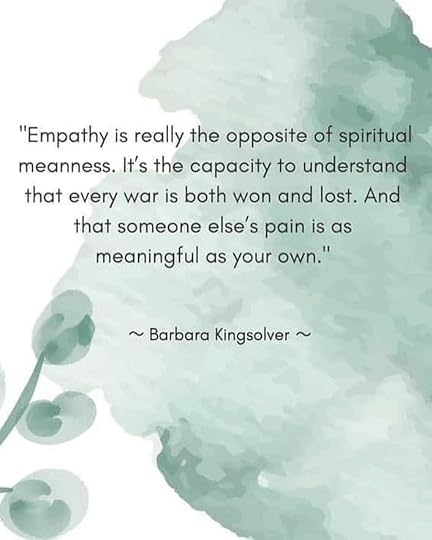

Library Heaven cover image at the top by Mystic Art Design from Pixabay
March 2, 2024
SPOTLIGHT ON A BOOK AND AUTHOR
My spotlight in this blog post is on poet/novelist Stephen Alexander North, who writes sci-fi, horror, thrillers, fantasy, and poetry, and his newest release, Dead Tide. This is the first book in the Dead Tide series.
 BOOK DESCRIPTION
BOOK DESCRIPTIONTHE WORLD IS ENDING, BUT THERE ARE SURVIVORS!
Nick Talaski is a hard-bitten angry cop. Graham is a newly divorced cab driver. Bronte is a Gulf War veteran hunting his brother’s killer. Janicea is a woman consumed by unflinching hate. Trish is a gentlemen’s club dancer. Morgan is a morgue janitor.
THERE ARE NO CONTINGENCY PLANS FOR THIS!
The dead have risen, and the citizens of St. Petersburg and Pinellas Park are trapped. The survivors are scattered, and options are few. And not all monsters are created with a bite.
Some still have a mind of their own…
EXCERPT FROM DEAD TIDEBlakeThe smell of death and decay would always be with him. No amount of scrubbing or sterilizing dulled it. However, he was so familiar with it he barely perceived it, and now he only noticed the smell when he opened a door. He pushed his mop and bucket along a gleaming white-tiled corridor, trying to ignore the squealing of the wheels.
There was a double door just ahead. A sign to the left of the doors read: Decedent Storage and Investigations. He held one door open with his body and pulled the bucket through. His boss, one of the technicians, stood just a few feet away inside.
“Ah, there you are, Blank. Table six has a spill… bastard had a colostomy bag, and I didn’t know it. The thing burst all over. Hop to it! Dr. Bastrov will be in soon.”
“It’s Blake,” he corrected, hoping none of his irritation showed, keeping his eyes cast downward. He was a small man after all, and his boss a hulking behemoth, grossly fat—probably three or four hundred pounds—but still strong. Blake knew he would only be in trouble if his boss could catch him.
The man grinned broadly and smacked his own forehead in mock reproof. “That’s right, how could I forget, Blank—-Blake?” The grin faded. “Better get your ass in there and clean up, or…”
Blake saw a slick of blood, feces, and probably urine forming a coagulating stain around a gleaming autopsy table. The corpse was still there, but none of the coroner’s staff was present, just his boss and buddy, good ‘ole Joss “The Hoss” Hawkins. He resumed pushing his bucket toward the table.
He’s not my buddy. The bastard hates me.
“I’m going for a cigarette, boy, so when you’re finished here I want you to start on the men’s room on the first floor. Got me?”
The urge to snap a salute was strong, but he forced it down. “Sure thing, boss,” he said and dipped the mop into the hot soapy water. Hawkins brushed past him and through the door. Blake couldn’t help but stand there by the puddle for a moment, trying to collect himself. He pushed the mop into the putrid mess, smearing it over the tiled floor.
There was a violent thud, and he whirled, thinking Hawkins was up to something.
No one was there. He looked at the three tiered rows of storage drawers for decedents, each one a polished metal sliding tray and most of them containing a piece of dead meat. He was certain he had heard a noise, though, and wondered if Hawkins was playing a joke on him.
Three or four additional thuds came from several drawers. The pounding came quicker, and then there was a metallic clatter from behind him. He spun back around, tensing; the mop held before him defensively.
He let out a long, drawn-out sigh. “Good Lord, you gave me a fright, Doctor.”
The doctor looked at him, and Blake realized he’d never seen this sort of expression on her face before: a mix of fear and puzzlement. One elegant eyebrow arched as she tilted her head toward the noise. Even now, he found himself captivated by her. Her long, lustrous chestnut hair was up in a ponytail, but the bangs had come free and framed the pale oval of her face.
“What’s going on?” she asked. When Blake shrugged, she said, “Call Tech Hawkins right now. This better not be some kind of joke.”
“Right away, ma’am,” he replied. “I’ll page him.”
TO BUY: https://books2read.com/u/m26A8GBIOGRAPHY
Stephen Alexander North is a Florida native, a closet lounge singer, and the Obscure Floridian Writer of sci-fi, horror, thrillers, fantasy and poetry. He has a Bachelor of Arts in English Literature from the University of South Florida. He served in the Army Reserve as a military policeman from 12/84 to 12/90 (reaching the rank of sergeant). At fifteen, his first job was taking care of over 200 parakeets, and 100 lovebirds in a neighbor’s garage. At sixteen, his first ‘real’ job was making camera bellows (the black accordion part on old style cameras) Some of the bellows were for NASA—Probably not any made by him though. From there, he worked in the fast-food industry (a grill god at McDonald’s), a bookstore (or Heaven, as described by the author), then three major retailers (Maas Brothers, Home Depot, then Walmart). He’s also worked, briefly, in a print shop (that ended abruptly when he nearly fell into one of the presses, which might, at the very least, have cost him an arm).
His favorite hobbies are listening to music, reading books, walking the dogs, Sancho and Oreo, and riding his bike with Kerri (his girlfriend).
He has a daughter that he’s very proud of.
Q&A with Stephen A. NorthYou have a lot of titles out there, some poetry books and some horror genre fiction. You like to write about zombies. What has drawn you to that genre?
I will say seeing the original Dawn of the Dead movie when I was sixteen or seventeen really grabbed me in a how would I survive type sense. It wasn’t just that though, especially as time went on, and I worked in retail. There’s social commentary going on here, and the topic of consumerism and people going to the mall… Anyway, I found out, somewhere around 2005 or 2006, that a publisher was looking for these types of novels. I’d written and self-published my first book (an alien invasion/sci-fi thriller) at that point, and writing a zompocalypse novel seemed like a great challenge. Could I do it? And at that point, I’d been in retail over twenty years—I’d had plenty of experience with people from all walks of life. What if I wrote an epic zombie survival novel with a huge cast of characters! I went for it, although I had no idea how dark this book would get.
Tell us about your latest release.
I had two books release on the same day! One of them was my fifth poetry book, A View From The Edge, and the other was the re-release of my first zombie novel entitled Dead Tide. It has been with two different publishers, and this is actually the fourth edition! Currently there are four books in the series, and a possible fifth is under consideration/contemplation. The series is about a group of people, actually more than one group, trying to survive in St. Petersburg, Florida. It’s written from a moment to moment perspective, with alternating viewpoint characters by chapter.
What is the hardest part of writing these books?
I had no idea how dark they would get. Never know what’s around a corner.
Give us an insight into one of your main characters.
There’s a police officer named James Dodd. You might not get the idea that’s something’s off about him right away, but other police officers play pranks on him, and you do find out later that he lives with his mother, but doesn’t go to check up on her when everything goes to pieces.
Is anything in your fiction books based on real life experiences or purely all imagination?
The real world, and my life experiences make it into my books, along with imagination. The question might become, where is the dividing point. Many of my stories are set in my hometown of St. Petersburg, or nearby: Pinellas Park, Tampa, or somewhere else in Florida.
What have you learned from writing your books?
Writing and reading are escape portals to somewhere else. You don’t really need to go anywhere to have the adventure of a lifetime.
Is there a message in them you want readers to grasp?
While I do address certain issues or mindsets in my stories on occasion, the primary intent is escapism or entertainment. Here’s someone in a moment so you can put aside whatever you’re struggling with in real life for now.
When did you first consider yourself a writer, or do you recall how your interest in writing originated?
Going through the wardrobe to Narnia, and finding the ring with Bilbo were probably the true catalysts! Although my first short story had its roots in the tales of Horatio Hornblower, an English sea captain in the late 1700s. It’s funny, but many things I’ve written were for a purpose, not just something I’ve dreamed about per se. I was in sixth grade (reading the Hornblower series), when my Spanish teacher asked us to write a story for class. Senor Bailes was his name (a wonderful, amazing guy). So, I wrote a story of an English sea captain trying to capture the Manila Galleon (a Spanish treasure ship). I haven’t written any stories since then in that vein, but there is one poem!
What techniques and tools do you use to keep yourself organized?
I save my works-in-progress (with a date attached) often. My work desk is usually a wreck strewn with papers, pens, headphones, books and notebooks. I think I just listed a lot of things I don’t do to be organized. lol
What is the easiest thing about writing?
Using a computer! I started off with pencil (preferably pen) and paper, then a typewriter, word processor and finally a computer. Seeing your story on paper or on a computer screen really gives this it feels like a book vibe for me. Other than that, actually coming up with an idea of what to write about is easy most of the time.
How long on average does it take you to write a book?
When I was working full-time, usually a year. Since I’ve retired it’s different, but not what I expected necessarily. I haven’t adjusted to retirement, and I’m still focused on re-acquiring my health. Aside from that, I think I wrote three poetry books last year. It’s been a long time since I actually finished writing a novel. Short stories usually a week or two, although I haven’t written many of those lately either. There’s one in an upcoming anthology (hopefully this year)!
Are there any occupational hazards to being a novelist?
Haha, I remember getting hit on by swingers at a convention in Pittsburgh (a book signing convention)! On a more serious note, yes there are. There are judgmental people out there who will decry your work without reading it. Many of them are fearful of what they don’t understand. Family members aren’t always supportive or understanding. This can be a spouse who wants you to watch tv, or ‘someone’ who thinks you’re a weirdo for writing about zombies. This can be people who won’t come to what is probably one of the biggest moments in your life (a book signing at a bookstore or landmark in your hometown). I guess the bottom line is people who don’t get your passion. This could apply to anything really, not just being a novelist. So, I get it. That’s where the friends, family and fans who do appreciate what you’re doing, really make a difference.
Writing about sex – easy or difficult?
Depends on the context? In one of my short stories, and several of my poems, I had anxiety about it. The short story was easier to ‘let go’ in that people know (I think) that it’s just a story—a seedy, gritty story, but just that. Somehow the poems were more intense in that it feels personal, whether it is or not. It’s better to let go. People will like you or like your books, or they won’t. I will say that one poem that gave me the greatest anxiety was one that people mentioned to me as being a favorite. That was cool. Writing under a pen name saves some of that grief.
What has been the toughest criticism given to you as an author?
Too many characters. Chapters are too short. This is a dance of hopelessness. Those three comments were originally complaints on Dead Tide, but many people liked the work for the same reasons. More to the point, criticism from fellow writers and editors, was the toughest, but most helpful. I’ll take tough, constructive criticism any day and consider it, but “I’m giving this book one star because it’s too expensive!” is completely unfair. I’ve had that comment a few times on books of mine sold by a publisher.
What has been the best compliment?
The love and support for my books from my friends, family and fans.
Was there a person in your career who has impacted you the most or who has really made a difference?
The sci-fi author Keith Laumer once spent a couple hours on the phone talking with me, about books, my writing, and invited me to visit him, but more so is my girlfriend, Kerri. She’s made a huge difference in my life, and has been a tremendous help with my books.
Which writers inspire you or are your favorites, and what really strikes you about their work?
There are so many! The first two that come to mind are Keith Laumer and Robert B. Parker. They both frequently wrote from a first-person perspective, and I greatly admired their writing styles. Both injected humor, but in grim settings or situations. There was often a noirish feel to their works. Most of Laumer’s works were sci-fi, and Parker’s were detective-type mystery/thrillers or westerns. Something about their narrative voices really spoke to me.
What are the most important attributes to remaining sane as a writer?
I chuckled reading that question. Not that it isn’t a good one, but I may not be sane. My answer, though, is manage your expectations. I have known people that have great success with their writing. Six figure success. Most of us are nowhere close to that. Taking a walk, or going on a bike ride helps too.
Do you admire your own writing?
Yes! I’ve come a long way. Sometimes I’m shocked by what I’ve written. It’s a good feeling.
Have you ever hated something you wrote?
When I first started out, I’d always end up hating it. With time, and critiques, I moved past that.
Who would play you in a film of your life?
Rutger Hauer? Lol John Candy more likely! I haven’t always been heavy, but I am a big guy. Despite the sorrow, there’s been a lot of laughs too. I try not to take things too seriously, but sometimes I do.
What are your thoughts on good/bad reviews?
As long as it’s fair, I think I handle them well. Fair or not, it’s part of putting my work out there for sale. As to ones I’ve written, I’ve never given less than three stars. If it deserves less than that, I didn’t write one. Just me. I have told people in private or in a group what I thought was wrong, or what I didn’t like.
Which social network works best for you?
Currently, I’m present on more than I ever have been before. Facebook is best for me so far as far as interest in my books. I’ve been tweeting for each book release, and I’m on Instagram and Threads, but on the latter two, I haven’t really experimented much. I’m not on TikTok. I do have my own channel on YouTube with fourteen subscribers and around a hundred views. I plan to record myself reading poems more often (but probably not anymore where I’m singing).
Any tips on what to do and what not to do?
I think writing for anthologies is a good idea. Give it a shot anyway. Most of them for me have been for charity. That is wonderful in itself, but when you write for an anthology, there’s usually a theme they’re looking for. This can lead you to writing something you never would have! Plus, it’s a publishing credit! I was in one charity book that included one of my favorite authors! I was in an unpaid anthology that had an introduction by another of my heroes. And I’ve been in a bunch that included friends. That matters to me. I write what makes me happy, and what challenges me. I’ve really enjoyed going to book conventions too. If you go to one as an author, sign up for the interview panels, do the book readings!
How do you relax?
I listen to music, or take walks in a park. Either of these things often lead to writing. I love to read. I haven’t done yoga in a long time, but enjoyed that too.
Who are your heroes?
My parents, David and Joyce, my brother, Ron, a teacher, Bill White, another teacher, Mike Prosynchek, two drill sergeants, SSgt Hope and SSgt Goss, a squad leader, Kurt Kobel, my best friend, David Wawrzynski, another teacher, Jane Buck Addis, a friend, Tina Kurcz, and my girlfriend, Kerri Gregory.
What is your greatest fear?
Heights.
Your proudest achievement?
Being a father
If your friends or family members were asked to pick three character traits that describe you, what would they say?
Honest, integrity, noble
What are three positive character traits you don’t have?
Not sure how to answer that one.
If you could be anywhere in the world right now, where would you be?
Right here at home.
What is your favorite book and why?
I loved Tolkien’s The Silmarillion. It was a world I would love to live in and explore.
What’s the best movie you’ve seen in the last year?
Death on the Nile was decent. I’ve missed a lot of movies lately.
What would you do if you won the lottery?
Buy an SUV, a better house with a huge library (and all the books still on my TBR list), enjoy some traveling, get a personal trainer to help me get into better shape sooner, and help out some people that I care about. I’m sure I’m forgetting major things.
What is your favorite memory from childhood?
All the special times my family had together. It’s hard to pick one.
What is your favorite motivational phrase?
I’m beautiful inside and out.
What advice would you give to your younger self?
I’d be more apt to say something to someone I love to save their life. If I convinced my younger self to change a behavior, I wouldn’t be me now.
Do you laugh at your own jokes?
I’m often self-amused.
What makes you cry?
Onions and pictures.
What makes you laugh?
Many things, my friend.
What’s the loveliest thing you have ever seen?
My daughter’s entrance into the world.
What advice would you give to aspiring writers?
Join a writer’s group to get used to criticism. Read Damon Knight’s Creating Short Fiction. Read! Challenge yourself with different types of writing, or genres, or points of view.
WEBSITE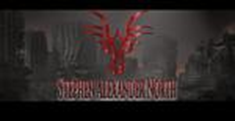
https://payhip.com/StephenAlexanderNorth
YOUTUBEALL BOOKS BY THIS AUTHORFOR MY FRIENDS HERE WHO ARE INTERESTED
Just a heads up for followers of this blog: As some of you know, I am working on a dark gothic horror fantasy series that includes a parallel universe. It’s new territory for me since my previous work has been poetry, a coming-of-age novel, and a recovery memoir. At the same time, what I’m embarking upon at this stage is what I’ve always wanted to do.

The content on this blog will still include posts about recovery, personal stories, passions, poetry, and struggles. I’ll continue to review books and shows, most notably in the horror genre. There will be excerpts, announcements, and updates regarding my current project. And I’m adding a new feature!
Every so often, I will spotlight a horror/fantasy author and one of their books. The feature will include a Q&A and other information about the author and book. My first spotlight will follow this post as I’m putting the finishing touches on it right now.
I hope you enjoy the future content, and if you have any suggestions on what you would like to see on my blog, please let me know in the comments.
Have a great weekend!
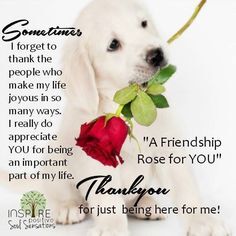
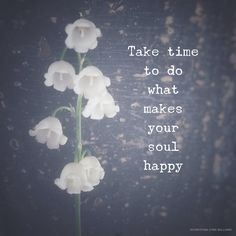
January 24, 2024
GREAT LESSONS I LEARNED ABOUT BEING SORRY
We learn a lot as we grow if we care to, and I owe a lot of what I learned to wise friends, twelve-step programs, books, and making mistakes.
Interaction with others hasn’t been easy for many of us. The recovery process, for me, has been a godsend. Take the business of making amends—learning to apologize from the heart and with grace. That requires allowing ourselves to be vulnerable. For some of us, that took time. It took a great deal of restraint for us to not be defensive and learn to apologize with no buts and no excuses. No “if” I offended you nonsense.
The actual words “I’m sorry” or “I apologize” are essential, we discovered, as is telling the person what we’re apologizing for, and especially not saying, “for whatever it is you think I did.” It’s hard to sincerely apologize if we don’t have empathy for the person we’re apologizing to and an understanding of what we did and why it was wrong. A heartful and genuine apology includes acknowledging the offense, taking responsibility for it, and expressing our remorse.
I’m sure most of us have heard this: “I apologized to you; now, aren’t you going to apologize to me?” It’s not always as ridiculous as it sounds because, in many situations, this person was just as much at fault or more. Still, we’re there to clean up our side of the street, not start sweeping theirs. We’re there to give an apology, not get one.
And we don’t dictate the outcome. We have no control over that. We can’t make the person accept the apology. We don’t expect, let alone demand, insta-forgiveness.
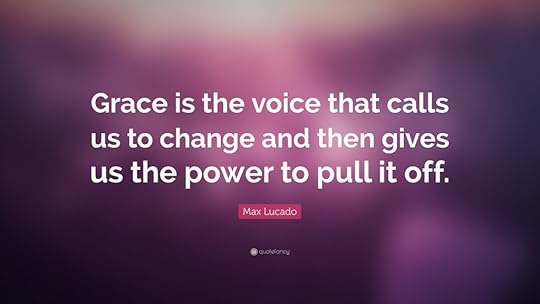
As for being on the receiving end of an apology, that can be difficult, too.
When I was still very young, someone I’d been extremely close to invited me to her house for the weekend. We’d been estranged, and she wanted to make amends to me. She said I was first on her very long list.
My response to the words she had anxiously practiced was to hug her and tell her, “It’s okay.” I was good at that, telling people, “It’s fine. You have nothing to apologize for. Forget it.” First and foremost, I wanted to relieve her of her burden. I didn’t want her to feel bad.
Her response to me after the hug was, “I made amends, but I don’t feel better. Why don’t I feel better?”
“Because you haven’t forgiven yourself,” I told her.
Her eyes widened. “Really? Wow! I think you’re right.”
But I was only partly right. Sure, I had an open heart, which is always good, but I wasn’t honest because it wasn’t okay. None of it was okay, and, on some level, she knew that.
I couldn’t tell her I was devastated by much of what she did or that it completely shattered me. I didn’t say a word about how much it damaged me. Granted, I didn’t know then how long it would take to recover from the many ways I felt betrayed by her, but I was fully aware of how cruel she had been in her moments of desperation.
What I realize now is I didn’t know where she ended and I began. She and I had been bonded for life after the day she overdosed on pills, and I called an ambulance and then kept her awake until they arrived. The paramedics told me she would have died otherwise. But for many years, I had allowed myself to be corrupted by her influence, and to my own detriment, I would not betray her even when she trashed me, lied to me, and abandoned me. I somehow made myself responsible for her comfort, well-being, and happiness, always riding to her rescue. It wasn’t selfless either; I just never wanted to lose her. She knew that, and she counted on it. So, I also had a part in it that I didn’t acknowledge because I didn’t see it yet.
I’m not sure if I told her that I accepted her apology. In retrospect, it was something I very much appreciated and needed to hear, but I didn’t say that. I’m not even sure I heard much of what she said while apologizing. It’s clear to me now that I wanted to be anywhere but there in that room at that moment. I wanted the whole thing to be over and done with. So, I didn’t process it. In fact, I felt undeserving of her amends, and God help me if I were to make her feel guilty or worse.
Interestingly, if someone had asked me what I needed at the time, I wouldn’t have known and likely wouldn’t have cared. And, yet, I always knew exactly what she needed.
It occurs to me now that there was no resolution that day—only smiles and hugs, and let’s get on with the day. But martyrdom helps no one. There are unanswered questions. Is it going to be different now? How can we make it different?
Going forward, and as hard as I tried, I still didn’t fully trust her or feel safe with her. I just kept trying. So, the deep pain never really went away for either of us, and the healing process never began. We were never able to rebuild that relationship or restore that broken trust.
I must say that clarity is both a blessing and a curse, but I’d never want to go back to having so little of it.
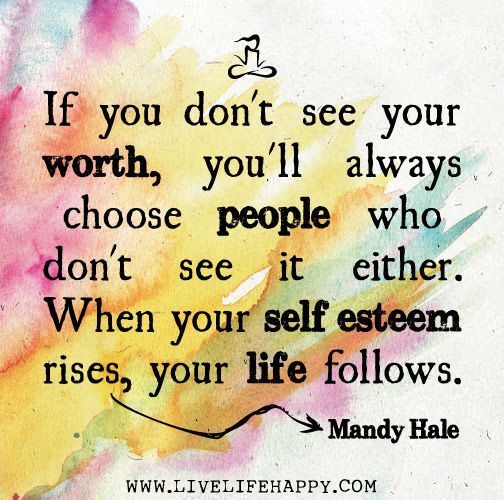
November 25, 2023
TAKE CARE OF EACH OTHER
Take care of each other.
What if that was the advice every one of us was given about our fellow humans the moment we could understand?
It always seemed to me that if we all understood one another better or tried to, the world would be a much nicer place. If we can’t even do it individually, how do we do it on a global scale? How do we create a kinder world? This is what I often wonder.
Casting Out “Others”People see “others” in the sense of “us against them.” Mental health is one of the many issues that place us in an “other” category and that’s what I will focus on in this post, but I want to preface it with this:
There is a subset of humanity that doesn’t understand and accept other races, cultures, sexualities, and gender identities or respect the existence of other religions. It’s usually the same faction that won’t acknowledge socioeconomic, physical, cultural, or mental limitations and the consequences of trauma. They say things like, “There’s no excuse not to succeed,” or “We are all given the same start in life, the same opportunities and choices.” They think we are basically the same in terms of how our brains work and what we are and want. This is categorically untrue.
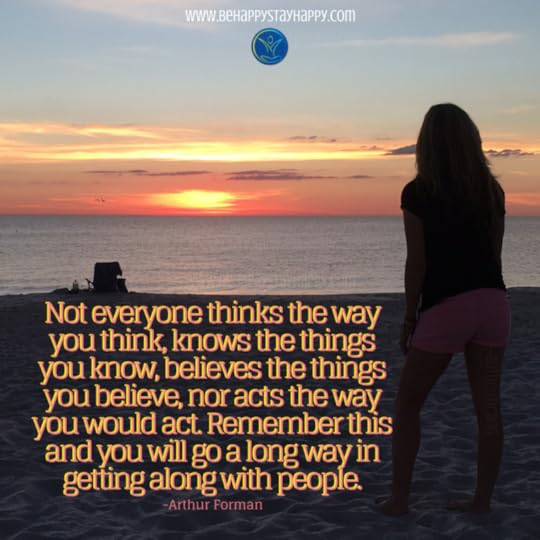
We can’t assume people don’t try hard to be functional members of society. A lot of people are out there trying a lot harder than others think. Most of us want and expect to be what’s considered normal, functional, and successful despite our circumstances.
When it comes to the different terms we’ve established to acknowledge and support others, there’s a lot of mocking and contempt—especially when it comes to gender identity and sexuality. For a simple example, there are those who can’t comprehend or accept that a person can have limited, if any, desire for sexual contact. But ‘asexual’ is one of numerous terms that have helped people realize what they want as opposed to what other people want. There’s even a term for those who only feel a sexual attraction when they bond with someone on an emotional level—demisexual. These new and updated terms and pronouns, which some people have unfairly criticized as “butchering the language,” are a result of updated knowledge. We use these terms to better articulate the nuances of people’s identities.
Some people want to call it “woke” to acknowledge all of this (as if it were a bad thing!), but what it is is awareness and treating others with empathy and respect. In doing this, we choose to be aware of the struggles of others. We choose to see, validate, and support one another.
“The key to learning is an awareness of where you lack understanding.” —James Pierce
I wanted this post to be about everyone struggling with being cast out for their different set of circumstances, as there are still too many people dismissing their realities. Someone may know or think they know of individuals looking for “special treatment” or to be given what they don’t deserve, so they assume that about anyone in a similar predicament. I feel that, for the most part, all these people want are basic human rights and to be treated with dignity and respect, as well as understanding and acceptance. They’re not looking for pity. They want what most people take for granted—what most people already have. Unfortunately, however, there’s a massive disconnect in society, and I believe a lot of it has to do with what we’ve been taught.
Embracing diversity and divergence simply means understanding that others are not you and can’t do you. Pretending to be what everyone wants or expects is torture for them and leads to disaster, even tragedy. If someone is naturally born closer to the accepted norm, they may not understand what this is like for those of us who aren’t—those of us who have to push ourselves significantly farther from who we are in order to appear the same. All we want is for people to try to understand.
Now, when it comes to mental health, I don’t know what it’s like to be clinically depressed or suicidal, but I know it’s helpful to talk to people who can tell you what that looks like. The same is true for those with bipolar disorder, borderline personality disorder, addiction, and every other issue we’ve heard of. The knowledge helps us, and it helps those battling these issues.
My Personal CircumstancesI’m sharing my thoughts here as a neurodivergent trauma survivor diagnosed with general anxiety disorder and having social anxiety to boot. The general anxiety is manageable now and much improved, but the social anxiety is a work in progress. I have no doubt that many people could relate to some or all of what I’ll say here, so hopefully, this helps.
Feeling a degree of anxiety in trying circumstances as part of living, working, and socializing is normal. However, when you have an anxiety disorder, that means your anxiety is well beyond the normal level. It makes your life unmanageable in the sense that you can’t live, work, and socialize the way others do. It doesn’t mean you can’t do well or, in many cases, exceptionally well, but your anxiety interferes and can shut you down. Panic can immobilize you. The anxiety you have kind of lives with you, and you even become anxious about things that haven’t happened yet or are unlikely to happen.
As for the social anxiety disorder, again, it’s not the usual trepidation of meeting new people. There’s a paralyzing fear of judgment there. As for where that comes from, I can only imagine. I want to say it comes from being in past situations where you were judged harshly, situations where someone betrayed your trust, and most definitely from experiencing narcissistic abuse and character assassination. I base my perceptions on my own experience.
And despite having social anxiety, I come to life with energy and enthusiasm if I’m comfortable with someone or everyone present. I’m curious, animated, engaging—present in every moment. It doesn’t matter if we just met or have known each other for decades. These situations tell me, yes, this is who I can be. This is who I really am.
If I’m not comfortable, I’m the complete opposite. That makes communication in a community setting or on social media difficult because the more people there are, the less likely I am to feel comfortable with everyone. So, I often hesitate to say anything or worry about what to say or what I’ve said. I’m afraid to put myself out there, trust, and be me. I’m convinced I’m doing it all wrong, that people are angry with me or have decided they don’t like me after all. It comes down to a feeling that I cannot shake, that the more I say, the more ammunition I give people to use against me, and the more opportunity I provide for someone to be cruel. Even if you’re in a place where you’ve accepted any accountability on your part for past situations and you’ve grown from learning a better way to handle things going forward, trauma from the past is still present in those uncomfortable situations.
I have to constantly remind myself that most people aren’t focused on me. It was the old me who thought that, and the past isn’t the present. The way someone behaves may have little, if anything, to do with me since everyone has their own struggles. It’s important to recognize when we need to give people the benefit of the doubt. Even when making a conscious effort to apply these policies, my anxiety activates and needs to be addressed, which leads to a lot of avoidance of social situations, reaching out, and initiating group conversation.
And where does neurodivergence come into play?
The Paradigm Treatment Program for Mental Health Conditions states that “Neurodivergence is more common than many people realize. According to recent estimates, approximately 5-20 percent of the global population is neurodivergent.”
That includes people on the autism spectrum.
Those of us on the spectrum may get very anxious and worried and communicate something different to others as a result, like anger or hostility, when it’s essentially panic. Our anxiety may be triggered in crowds, assemblies, supermarkets, etc. I’ve always hated bright lights, and now I hate loud noise, like the music businesses play when they put you on hold. I have to hold the phone away from my ears. But I want to say, as a neurodivergent, being met with any instance of a lack of support is painful in a way that overwhelms. I wonder if that’s because deep down and despite evidence to the contrary, we fear that what’s different about us isn’t accepted or welcome, let alone embraced.
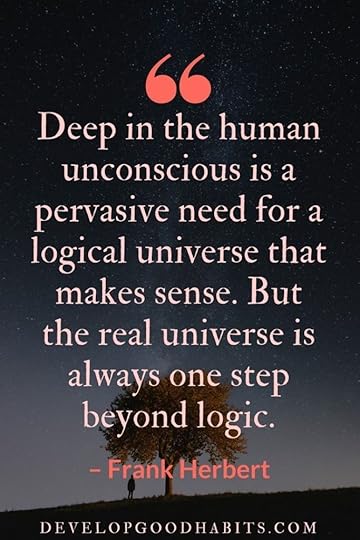
At one point, I wondered if neurodivergence is considered part of an anxiety order or if anxiety disorders are considered neurodivergent. The answer to both is evidently no, but I think there may be an affinity between the two.
Neurodivergent people have a different way of processing sensory information, so we experience social situations differently from others. In my case, I had two things going on. The neurodivergent in me was capable of processing or perceiving things inaccurately. However, as a survivor of emotional, physical, and sexual abuse, I learned to study people’s body language and facial expressions and read between the lines of what they were saying, rendering them painfully transparent. It was a trauma response I continued to develop over time, learning to read people well because I needed to know when I was safe or when I might have incurred someone’s wrath, etc. Giving people the benefit of the doubt can be difficult or nearly impossible for a trauma survivor.
EmpathyWhile we all come to understand our difficulties, we develop more empathy for others because we essentially realize how vulnerable everyone is, whether they are on the spectrum, overly anxious, neurodivergent, or not.
We may even develop empathy for people others strongly feel don’t deserve it, but all it is, really, is a willingness to understand. It’s a benefit of the doubt. It’s a grace we want to extend that we may wish had been extended to us more often. I empathize with those who’ve wronged me the most in my life because I know they were wronged, too, and part of a cycle that needed to end. They were a link in the chain of generational trauma that needed healing. Those people were not all part of my biological family but came from toxic dysfunction that existed in their own families.
In those circumstances, it doesn’t mean you have to approve of what they did or may still be doing. You don’t have to tolerate inappropriate behavior or even forgive the perpetrator, but understanding can help you navigate similar situations and propel yourself away from harm. You learn lessons from history to avoid repeating them, and time and time again, I find empathy is one of the most important lessons to learn.
Life doesn’t need to always be a competition. We’re all faced with hardships, and even when those hardships are not the same, trying to gain a new perspective can help remind you that most people ultimately want the same thing. We’re all in this together, for the most part. We should work together wherever possible and seek to understand and accept each other rather than exclude or marginalize. The problems we face can only be resolved when we’re all on the same page.
October 22, 2023
GOOD FOREIGN FILMS AND LOVE OF LANGUAGE
I love language. I love learning new languages and more of my own. We often acknowledge the affinity between a love of language and being a poet or a writer. Still, I’m sure this passion isn’t limited to writers or even linguists for that matter.
I can tell you that this poet and writer enjoys watching foreign films as much as I enjoy English-speaking films. German films are among my favorite. The Dark series was brilliant, and Dear Child is another really good one. (I believe they are both still on Netflix.) Watching those, I learned a bit of German and would walk around the house saying German words or pronouncing “good” the German way. 
Spanish films are another favorite.
I remember a lot of Spanish from growing up with a Spanish mom. Even with my Italian dad, I knew more Spanish than Italian because I had a lot more Spanish-speaking relatives than Italian ones. Honestly, though, my son took four years of Spanish in high school and is more fluent in that language than I am, but aside from the Spanish shows I watch, I’ve been taking a refresher course. So, now I know a lot more Spanish than I ever did, and I’ll continue to learn.
Of course, people can watch these shows in English, but they are all better in their original language with English subtitles.
What do I watch? Suspenseful thrillers. That’s what I love. One Spanish series I really liked was Who is Erin Carter? on Netflix. Now I’m watching You Cannot Hide, also on Netflix. —so far so good.
In this post, however, I want to give a shoutout to one Spanish show in particular, a series I finished about a week ago—Alba on Netflix. I’m not sure how many of you have watched it or plan to watch it, but if you are going to watch, just be aware that there’s substance abuse, profanity, nudity, sex, and sexual violence.
Now, this is where my blog goes from lighthearted to a bit heavy and distressing, as I grapple with a topic that is extremely important to me and to many.
Alba is based on a Turkish novel called Fatmagül’ün Suçu Ne? and begins with a beautiful young woman awakening on a beach in Spain. Evidence reveals that she was the victim of a sexual assault, but she doesn’t remember anything. Her continuing story depicts the all-too-common experience of trying to prove her case while dealing with further abuse, threats, humiliation, and more.
I do understand that some people don’t like this topic or can’t watch shows like this that trigger them. For those interested, however, please check out the trailer and read on.
This brave undertaking of Alba’s story resonated with global audiences and gained mass acclaim, but some of the criticism frustrates me.
A few called Alba unrealistic, and I can only imagine they never experienced it or been close to someone who has. There were complaints that it dragged on too long and was a “telenovela” quality drama.
For me, Alba is painfully raw in its authenticity. It’s powerful and intense, with some riveting twists and turns. Filmed in locations throughout Spain, it has a backdrop of glorious scenery. The cast is great. Elena Rivera in the titular role is excellent. Pol Hermoso is truly impressive. Jason Fernández’s facial expressions and non-verbal reactions spoke volumes for his character, and Álvaro Rico’s more nuanced performance is spot on.
Some called Alba a weak character. Again, I can’t imagine anyone who has experienced anything like this in their life or in the life a loved one would make a comment like that. What the young woman in this film endured for justice is something many of us only wish we had the courage to do. Personally, I don’t know how she hung in there through all of what her rapists and their enablers put her through. She was undoubtedly empowering and the hero of her story.
For a project taking on an important social issue I say, “Well done!” It’s worth watching for anyone who can handle it, and it is a must-watch for people who don’t quite understand what victims go through in the aftermath. As with everything, though, the people who need to watch it most probably won’t. Certain comments I read had me wondering if there are people who simply find reality uncomfortable and would prefer to look the other way. Other comments gave me the impression that some people who have victimized others or enabled perpetrators have found ways to justify what they’ve done and prefer to remain in denial.
Still, we should always continue creating awareness through movies and books.
Pol Hermoso, the Alba actor who so convincingly played what might be considered one of the most angry, violent, and abusive characters on the show, made quite an interesting statement. His character was so despicable that it kind of surprised me to read it. He said to the fans, “Thank you very much to all who have been there week after week giving voice to a topic so current and unfortunately so repetitive. Projects like this give meaning to our profession and push us to continue researching. Thank you.”
Amen to that!
October 7, 2023
FOR THOSE IN LOVE WITH HALLOWEEN🎃
“Listen! The wind is rising, and the air is wild with leaves,
We have had our summer evenings, now for October eves!” ― Humbert Wolfe

“I can smell autumn dancing in the breeze. The sweet chill of pumpkin, and crisp sunburnt leaves.” — Ann Drake
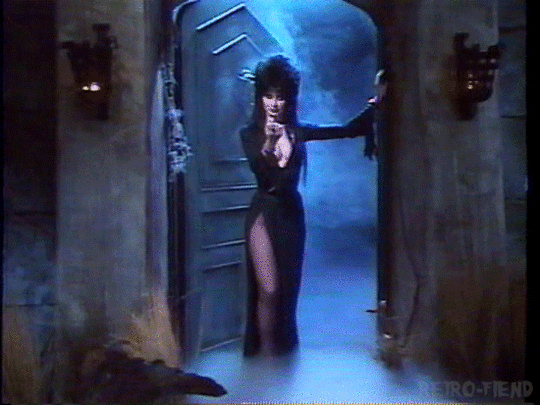
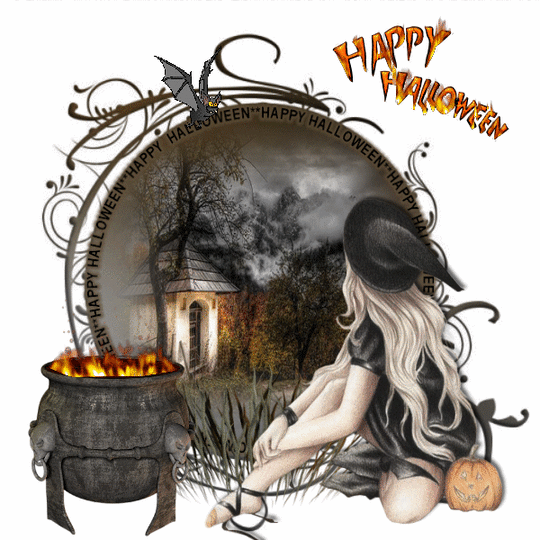 Scary Halloween True Events
Scary Halloween True Events
September 30, 2023
I CAN’T SAY THIS ENOUGH
Every 68 seconds an American is sexually assaulted.
1 in 5 women experience completed or attempted rape in their lifetime.
Nearly a quarter (24.8%) of men in the U.S. experienced some form of contact sexual violence in their lifetime.
As an awareness advocate for trauma healing and recovery, I tend to talk about rape more than I’d like to. It’s challenging because some people are tired of hearing and reading about it, but the problem is many more are tired of experiencing it and witnessing the backlash of the accused and their supporters.
There is a massive disconnect in the sense that many people are so afraid of accusations that they can’t properly empathize with victims. Of course, when people in positions of power insist that they themselves are victims (of coordinated malicious reporting effected by government operatives and gold-diggers), there is an escalation of fear and a diminishment of empathy.
The reality is most people have never had a scandal attached to their name. Maybe it’s because most of us properly teach and caution our boys as we teach and caution our girls. And, no, it’s not always the parents’ fault how a child turns out, but proper parenting is one way we can certainly help.
Throughout life, I’ve witnessed some parents ignoring or encouraging predatory behavior. Some are so afraid their child won’t be “normal” by their standards that they start early pressuring them to objectify women or are encouraged by their objectification of women, thinking, “Atta boy.”
As far as the backlash against survivors, some questions and comments surface repeatedly as if the culprits aren’t listening.
Let’s start with this one:
“He’s a good-looking guy and/or he’s rich. He can have any woman he wants, so why would he do that?”Well, first, I can assure you, whoever it is you’re talking about cannot get anyone he wants. You know that saying, “One man’s treasure is another man’s trash?” How about “Different strokes for different folks” or “Beauty is in the eye of the beholder?”
A man who has many women drooling may repulse many others, and usually, it has to do with behavior. Everyone hears the word no, and the more aggressive someone is in pursuit of others, the more often they will be told no.
For their ego’s sake, many predators want to believe they can have whomever they want. And that monumental ego can’t handle rejection.
More importantly, it’s not just about getting laid for these predators. It’s about conquest and power. Some of these guys live to humiliate others or, at least, women. They may act like the playboy and project this image of loving women when a part of them truly hates women for every rejection they’ve ever experienced, including their own mother’s. And the same is true for many people who rush to defend the perpetrators and in the same breath, malign the whistle blowers. I don’t think you can say you like or love women when you dismiss their pain and suffering so readily.
Following articles about rape, I see comments like “Conniving women strike again.”
They’ll remind us that a person is innocent until proven guilty, and despite overwhelming evidence, they’ll continue to say it. At the same time, they will assassinate the character of a woman reporting a sex crime by perpetuating unfounded allegations that she is a liar, a gold-digger, or part of a conspiracy.
Someone said recently that life is dull these days with all the considerations and correct measures taken to protect the work environment. “People are so needy now,” another responded.
So, for people of this mindset, life is dull when they can’t humiliate people or make them uncomfortable—when they can’t abuse anyone. Sadly, it’s not even that they can’t because they do. They want to be able to do it without any pushback or repercussions, as if the rights of the culprit are the only rights that matter.
To state the obvious, rules, training, and safety measures concerning work conduct exist to provide everyone with a safe and productive work environment. Without this oversight, abuse runs rampant.
What the hell kind of life do some people have when it’s no longer fun because they can’t be abusive?
Obviously, we have to teach our kids that they don’t need to oppress people to have fun in life.
Here’s another frequent question:
“Why wasn’t it reported? Why didn’t the person go to the police?”Rape is the most underreported crime there is. The majority of victims never report it.
Many people are unaware of rape trauma syndrome.
In the acute phase of rape trauma syndrome, victims are in shock, still experiencing fear and disbelief. A rape survivor can remain in that phase anywhere from days to weeks. After that, they enter a stage where they’re trying to get on with their lives while continuing to suffer. They are likely still afraid, anxious, and even depressed. They’re not back to normal despite trying to be.
In the final long-term reorganization phase, long-standing issues of self-esteem and fear continue to surface. Survivors continue to think about it, sometimes to the point of obsession, and they still may not be ready to talk about it.
Because not everyone responds the same way, people don’t realize that many survivors go through a very long period of emotional instability while experiencing extreme anxiety and fear. They feel everything from guilt and shame to humiliation and disgust. They can be in an obsessive hypervigilant stage for a very long time.
So, if people don’t seem to act rationally after experiencing rape, that might explain it.
People often do not think about justice when something like this happens to them. Some go into denial and don’t deal with it for years and years if they ever deal with it. Trauma shatters you. It breaks you. It takes time to put the pieces together and heal.
Getting evidence and proving your case beyond a shadow of a doubt at this point is almost futile, and the attorneys for the defense will do everything in their power to discredit an already traumatized person.
The next question is always:
“Why did they go to the media instead?”When most survivors finally reach a point where they need or want to share what happened to help themselves or others, the statute of limitations has likely expired. Going to the police at that point would be useless. If they can get media attention, their story can prompt an investigation or other victims to come forward. This path can lead to justice or, at least, an end to the abusive behavior. They don’t get compensated monetarily for that. They don’t even necessarily get justice for themselves, but they may save someone else from the same trauma.
I’ve said this before, but it would help so much if we were all on the same side. Then, instead of just protecting other women or just protecting men, we can protect each other. As global citizens, we all have the responsibility to do everything we can to end the violence. It’s time.
Help is availableSpeak with someone todayNational Sexual Assault HotlineHours: Available 24 hours Learn more 1-800-656-4673Feature image of woman by Anja from Pixabay
Top quote sources:






